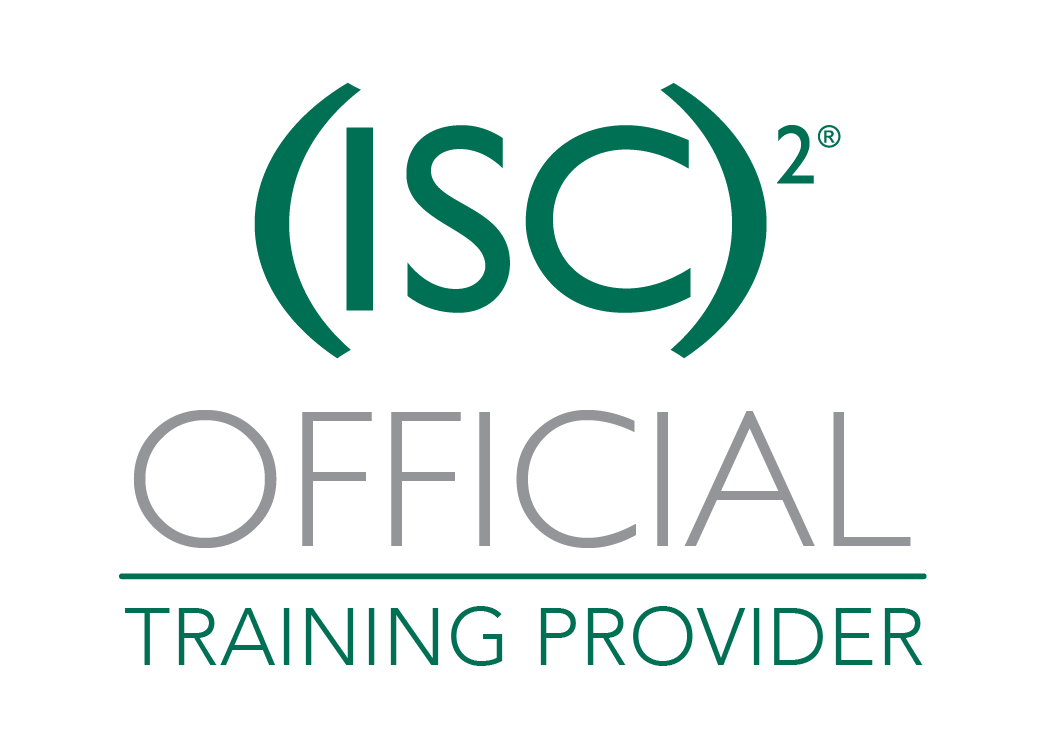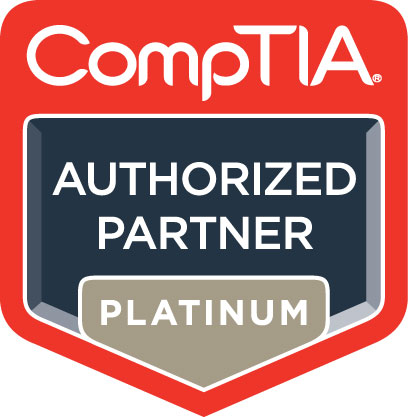Course Outline

Certified in Governance, Risk and Compliance (CGRC)
 CISP-1003 | Day | 5 Days
CISP-1003 | Day | 5 DaysCapitalize on the rising demand for Governance, Risk and Compliance (GRC) expertise by earning the CGRC certification. The CGRC is a proven way to demonstrate your knowledge and skills to integrate governance, performance management, risk management and regulatory compliance within your organization.
CGRC professionals utilize frameworks to integrate security and privacy within organizational objectives, better enabling stakeholders to make informed decisions regarding data security, compliance, supply chain risk management and more.
Upcoming Dates:
- Mar 16, 2026 - Mar 20, 2026
- May 04, 2026 - May 08, 2026
- Jul 06, 2026 - Jul 10, 2026
- Sep 14, 2026 - Sep 18, 2026
- Nov 02, 2026 - Nov 06, 2026

Who should take this course
The CGRC is ideal for IT, information security and information assurance practitioners and contractors who use the RMF in:
- The U.S. federal government, such as the U.S. Department of State or the Department of Defense (DoD)
- The military
- Civilian roles, such as federal contractors
- Local governments
- Private sector organizations
Course Objectives
This official (ISC)² training is based on the seven domains found on the Common Body of Knowledge (CBK) for CGRC, ensuring students successfully prepare for the CGRC certification exam while also enhancing their overall competencies in authorizing and maintaining information systems.
- Domain 1: Security and Privacy Governance, Risk Management, and Compliance Program
- Domain 2: Scope of the System
- Domain 3: Selection and Approval of Framework, Security, and Privacy Controls
- Domain 4: Implementation of Security and Privacy Controls
- Domain 5: Assessment/Audit of Security and Privacy Controls
- Domain 6: System Compliance
- Domain 7: Compliance Maintenance
Course Outline
Domain 1: Security and Privacy Governance, Risk Management, and Compliance Program
1.1 - Demonstrate knowledge in security and privacy governance, risk management, and compliance program
- Principles of governance, risk management, and compliance
- Risk management and compliance frameworks using national and international standards and guidelines for security and privacy requirements (e.g., National Institute for Information and Related Technology (COBIT), International Organization for Standardization/International Electrotechnical Commission (ISO/IEC)).
- System Development Life Cycle (SDLC) (e.g., requirements gathering, design, development, testing, and operations/maintenance/disposal).
- Information lifecycle for each data type processed, stored, or transmitted (e.g., retaining, disposal/destruction, data flow, marking)
- Confidentiality, integrity, availability, nonrepudiation, and privacy concepts
- System assets and boundary descriptions
- Security and privacy controls and requirements
- Roles and responsibilities for compliance activities and associated frameworks
1.2 - Demonstrate knowledge in security and privacy governance, risk management and compliance program processes
- Establishment of compliance program for the applicable framework 1.3 – Understand regulatory and legal requirements
1.3 - Demonstrate knowledge of compliance frameworks, regulations, privacy, and security requirements
- Familiarity with compliance frameworks (e.g., International Organization for Standardization/International Electrotechnical Commission (ISO/IEC), Federal Risk and Authorization Management Program (FedRAMP), Payment Card Industry Data Security Standard (PCI-DSS), Cybersecurity Maturity Model Certification)
- Familiarity with other national and international laws and requirements for security and privacy (e.g., Federal Information Security Modernization Act (FISMA), Health Insurance Portability and Accountability Act (HIPAA), executive orders, General Data Protection Regulation (GDPR))
Domain 2: Scope of The System
2.1 - Describe the system
- System name and scope documented
- System purpose and functionality
2.2 - Determine security compliance required
- Information types processed, stored, or transmitted
- Security objectives outlined for each information type based on national and international security and privacy compliance requirements (e.g., Federal Information Processing Standards (FIPS), International Organization for Standardization/International Electrotechnical Commission (ISO/IEC), data protection impact assessment)
- Risk impact level determined for system based on the selected framework
Domain 3: Selection and Approval of Framework, Security, and Privacy Controls
3.1 - Identify and document baseline and inherited controls
3.2 - Select and tailor controls
- Determination of applicable baseline and/or inherited controls
- Determination of appropriate control enhancements (e.g., security practices, overlays, mitigating controls)
- Specific data handling/marking requirements identified
- Control selection documentation
- Continued compliance strategy (e.g., continuous monitoring, vulnerability management)
- Control allocation and stakeholder agreement
Domain 4: Implementation of Security and Privacy Controls
4.1 - Develop implementation strategy (e.g., resourcing, funding, timeline, effectiveness)
- Control implementation aligned with organizational expectations, national or international requirements, and compliance for security and privacy controls
- Identification of control types (e.g., management, technical, common, operational control)
- Frequency established for compliance documentation reviews and training
4.2 - Implement selected controls
- Control implementation consistent with compliance requirements
- Compensating or alternate security controls implemented
4.3 - Document control implementation
- Residual security risk or planned implementations documented (e.g., Plan of Action and Milestones POA&M), risk register) Implemented controls documented consistent with the organization's purpose, scope, and risk profile (e.g., policies, procedures, plans)
Domain 5: Assessment/Audit of Security and Privacy Controls
5.1 - Prepare for assessment/audit
- Stakeholder roles and responsibilities established
- Objectives, scope, resources, schedule, deliverables, and logistics outlined
- Assets, methods, and level of effort scoped
- Evidence for demonstration of compliance audited (e.g., previous assessments/audits, system documentation, policies)
- Assessment/audit plan finalized
5.2 - Conduct assessment/audit
- Compliance capabilities verified using appropriate assessment methods: interview, examine, test (e.g., penetration, control, vulnerability scanning)
- Evidence verified and validated
5.3 - Prepare the initial assessment/audit report
- Risks identified during the assessment/audit provided
- Risk mitigation summaries outlined
- Preliminary findings recorded
5.4 - Review initial assessment/audit report and plan risk response actions
- Risk response assigned (e.g., avoid, accept, share, mitigate, transfer) based on identified vulnerabilities or deficiencies
- Risk response collaborated with stakeholders
- Non-compliant findings with newly applied corrective actions reassessed and validated
5.5 - Develop final assessment/audit report
- Final compliance documented (e.g., compliant, non-compliant, not applicable)
- Recommendations documented when appropriate
- Assessment report finalized
5.6 - Develop risk response plan
- Residual risks and deficiencies identified
- Risk prioritized
- Required resources identified (e.g., financial, personnel, and technical) to determine time required to mitigate risk
Domain 6: System Compliance
6.1 - Review and submit security/privacy documents
- Security and privacy documentation required to support a compliance decision by the appropriate party (e.g., authorizing official, third-party assessment organizations, agency) compiled, reviewed, and submitted
6.2 - Determine system risk posture
- System risk acceptance criteria
- Residual risk determination
- Stakeholder concurrence for risk treatment options
- Residual risks defined in formal documentation
6.3 - Document system compliance
- Formal notification of compliance decision
- Formal notification shared with stakeholders
Domain 7: Compliance Maintenance
7.1 - Perform system change management
- Changes weigh the impact to organizational risk, operations, and/or compliance requirements (e.g., revisions to baselines)
- Proposed changes documented and approved by authorized personnel (e.g., Change Control Board (CCB), technical review board)
- Deploy to the environment (e.g., test, development, production) with rollback plan
- Changes to the system tracked and compliance enforced
7.2 - Perform ongoing compliance activities based on requirements
- Frequency established for ongoing compliance activities review with stakeholders
- System and assets monitored (e.g., physical and logical assets, personnel, change control)
- Incident response and contingency activities performed
- Security updates performed and risks remediated/tracked
- Evidence collected, testing performed, documentation updated (e.g., service level agreements, third party contracts, policies, procedures), and submission/communication to stakeholders when applicable
- Awareness and training performed, documented, and retained (e.g., contingency, incident response, annual security and privacy)
- Revising monitoring strategies based on updates to legal, regulatory, supplier, security and privacy requirements
7.3 - Engage in audits activities based on compliance requirements
- Required testing and vulnerability scanning performed
- Personnel interviews conducted
- Documentation reviewed and updated
7.4 - Decommission system when applicable
- Requirements for system decommissioning reviewed with stakeholders
- System removed from operations and decommissioned
- Documentation of the decommissioned system retained and shared with stakeholders





















